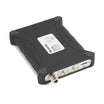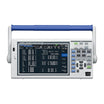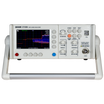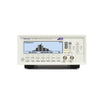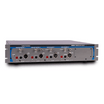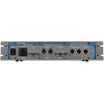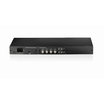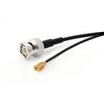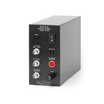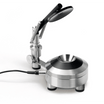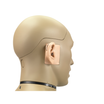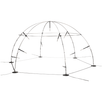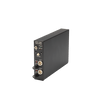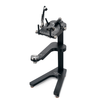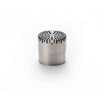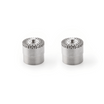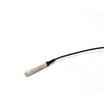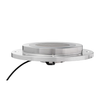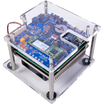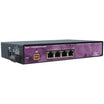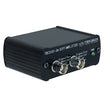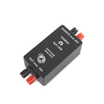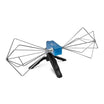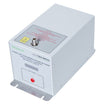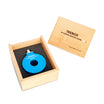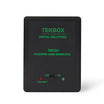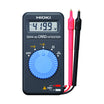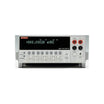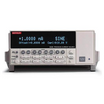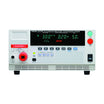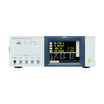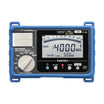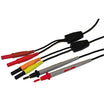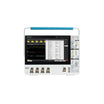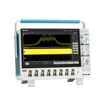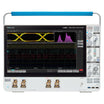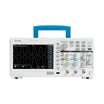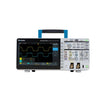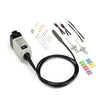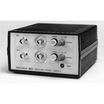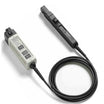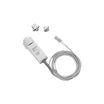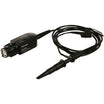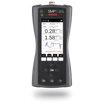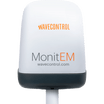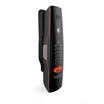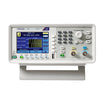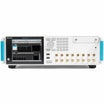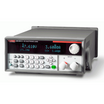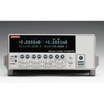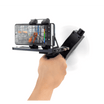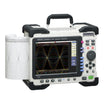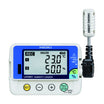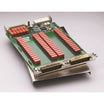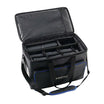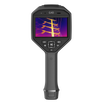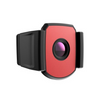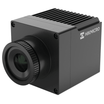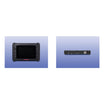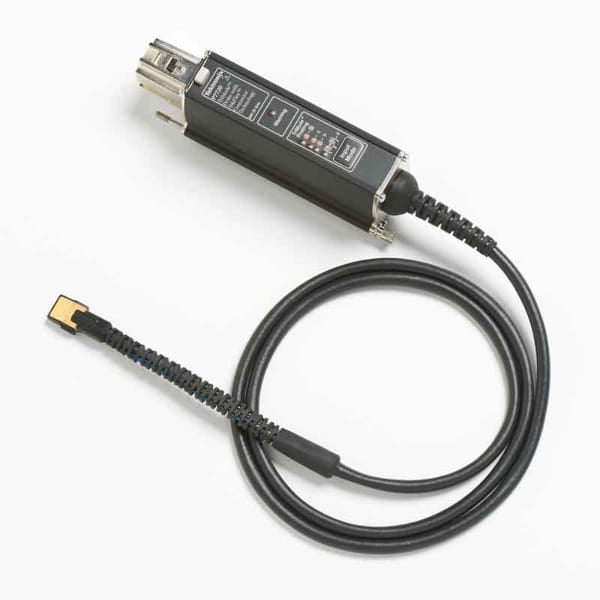
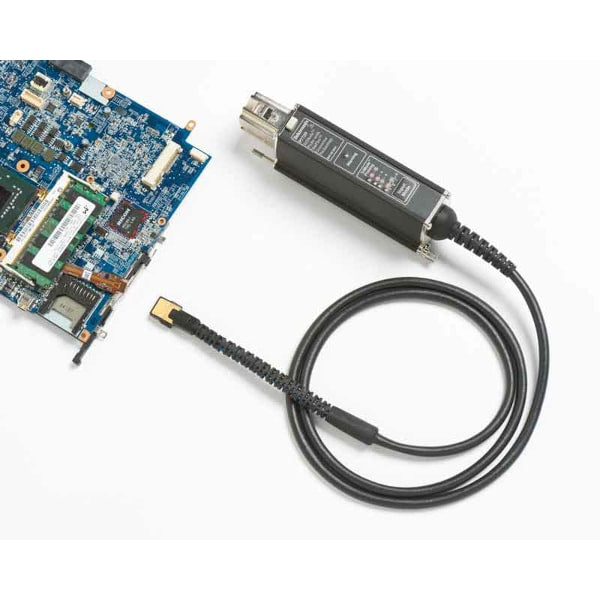
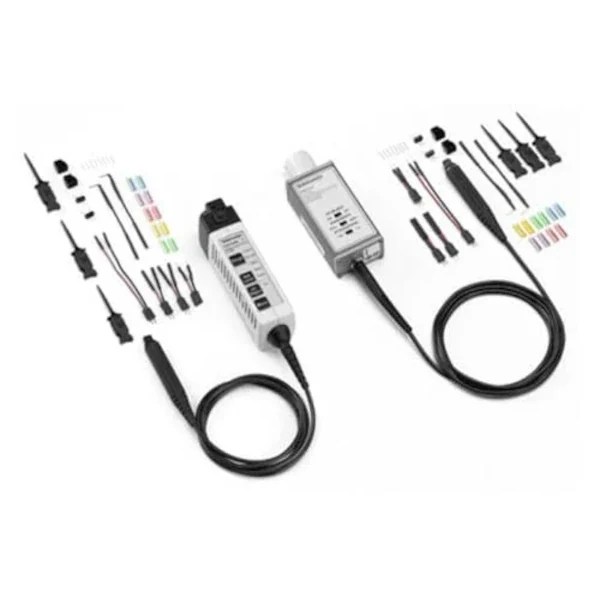
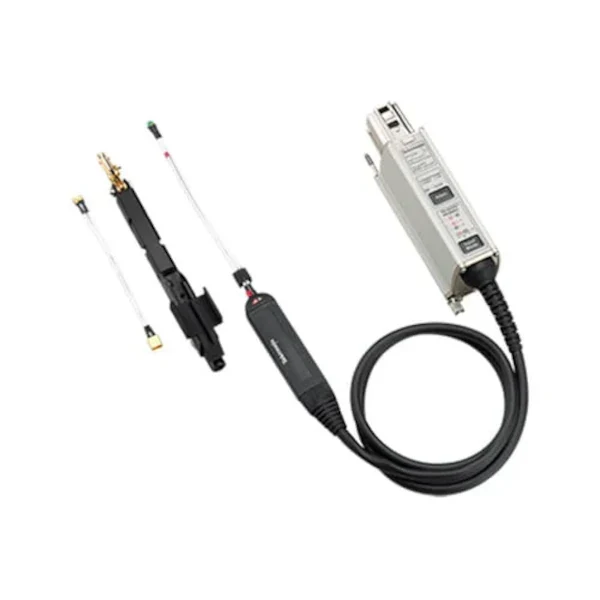
Tektronix P7625 LV Diff. Probe
Use our chat for personal support. Or contact us via +46 73-202 00 59 or sales@GOmeasure.se
- Bandwidth - 25 GHz
- Input Impedance - 50 Ω / 225 Ω
- Attenuation - 0.25/0.5/1/2/4 (coax) 1.25/2.5/5/10/20 (P76TA)
- Maximum Voltage - ±5 V (DC + pk AC)
Discover the possibilities
More information
Description
Differential signaling used in high speed serial standards requires very accurate characterization. The industry-leading bandwidth and signal fidelity found in a Tektronix low voltage differential oscilloscope probe ensures that you see every possible detail. Tektronix offers TriMode™ architecture which streamlines measurement acquisition by enabling you to make differential, single-ended, and common mode measurements with a single connection!
The P7600 Series TriMode probes and the MSO/DPO70000DX and DPO/DSA70000D Series Oscilloscopes are designed to deliver the industry's lowest system noise levels. This high sensitivity is critical for being able to make accurate measurements on low amplitude signals.
Key performance specs
- Full 33 GHz bandwidth to the probe tip (P7633)
- Industry's lowest probe and oscilloscope system noise
Key features
- TriMode™ probe - one setup, three measurements without adjusting probe tip connections
- Differential
- Single ended
- Common mode
- Remote head design connectivity
- Allows placement of probe amplifier close to the circuit being measured
- Coaxial adapters
- 2.92mm
- SMP
- P7500 probe tip adapter
- Use P7500 Series TriMode solder-in probe tips
- Probe automatically detects tips and applies DSP correction filters
- Probe-specific S-parameters
- Unique DSP filters created from data stored in the probe
- TekConnect® Interface - TekConnect scope/probe control and usability
- Direct control from probe compensation box or from scope menu
Applications
- Including, but not limited to:
- MIPI M-PHY, PCI Express, Serial ATA, Serial Attached SCSI, Fibre Channel, and HDMI
Combining TriMode probing with low noise performance
TriMode probing enhances productivity by enabling differential, single-ended, and common mode measurements with a single probe setup. Connecting a probe to the device under test can be a time consuming activity, especially if the probe has to be set up differently to make all the necessary measurements. TriMode probing improves productivity by reducing setup time, because only one setup is needed to make the three different types of measurements. Switching between Differential Mode [A-B], Single-Ended Mode [A-Gnd, B-Gnd], and Common Mode [((A+B)/2)-Gnd] is as easy as a press of a button.

As high speed serial data standards increase in speed and signal swings shrink, probes with high bandwidth coupled with low noise and high sensitivity are increasingly important for making accurate measurements.

The MSO/DPO70000DX and DPO70000SX Series oscilloscopes and the P7600 Series TriMode probes were designed to deliver the industry's lowest system noise levels. When used with a P76CA-xxx Coaxial Adapters, the vertical setting on the oscilloscope can be set as low as 3.48 mV/div with a system noise <1.1 mVrms at 33 GHz bandwidth.
This high sensitivity is critical for being able to make accurate measurements on low amplitude signals. The P7600 Series TriMode probes were designed to deliver superior sensitivity and allow the oscilloscope to directly measure small signals without using a zoom function. Using a zoom function to look at small signals does not change the intrinsic noise floor of the instrument which can make measurements on small signals problematic.
Connectivity
The P7600 Series probes utilize an interchangeable active tip design built around a custom tip interface using high frequency SMPM connectors. The P7600 Series probes feature an Automatic Adapter ID function that recognizes the attached adapter and automatically applies the correct DSP filters that eliminate imperfections in the frequency response all the way to the probe tip. This feature eliminates the risk of manually selecting the wrong tip type and is more efficient for the user.
Coaxial adapters
Coaxial adapters enable the probe to act like a differential input channel for the oscilloscope which effectively doubles the number of differential signals a single oscilloscope can measure simultaneously.
P76CA-292

33 GHz Bandwidth Coaxial Adapter with 2.92 mm (Female) connectors. This adapter is calibrated at the input connectors and is ideal for use with off the shelf or custom cables. Low skew cable pairs should be used to preserve full bandwidth performance.
P76CA-292C

33 GHz Bandwidth Coaxial Adapter with 2.92 mm (Male) connectors and 6" of high performance cable. This adapter is calibrated at the input connectors and is ideal for directly connecting to devices with 2.92 mm or SMA output connectors.
P76CA-SMP

33 GHz Bandwidth Coaxial Adapter with SMP (Female) connectors and 6" of high performance cable. This adapter is calibrated at the input connectors and is ideal for directly connecting to devices with SMP output connectors.
P7500 Series solder tip adapter
This adapter allows the P7630 probe to use existing Tektronix P7500 probe tips. The P7600 Series probe amplifiers have a 50 Ω input. When combined with a P7500 probe tip, the probe turns into a passive Z0 style probe with 450 Ω of differential input impedance. While Z0 probes can typically present a significant DC load to the device under test, the P7600 Series probes will minimize the effect of DC loading through the use of termination voltage adjustment.
P76TA

30 GHz Bandwidth P7500 Tip Adapter. The probe and oscilloscope system will support up to 30 GHz of bandwidth when this adapter is used with the P75PST Performance Solder Tip.
Unique probe filters
The P7600 Series probes contain probe specific S-parameter data. Attaching a P7600 probe to a MSO/DPO70000DX or DPO70000SX oscilloscope transfers this data to the instrument to create unique system DSP filters based on the specific S-parameter data of the oscilloscope and the probe. Creating unique filters based on the specific response of the system is critical as bandwidths increase. At bandwidths of 33 GHz, small variations in the signal path can lead to significant variation in frequency response. These variations are corrected using DSP filtering.
For more information: Tektronix
Documents
Datasheet:
Options
Video
Differential signaling used in high speed serial standards requires very accurate characterization. The industry-leading bandwidth and signal fidelity found in a Tektronix low voltage differential oscilloscope probe ensures that you see every possible detail. Tektronix offers TriMode™ architecture which streamlines measurement acquisition by enabling you to make differential, single-ended, and common mode measurements with a single connection!
The P7600 Series TriMode probes and the MSO/DPO70000DX and DPO/DSA70000D Series Oscilloscopes are designed to deliver the industry's lowest system noise levels. This high sensitivity is critical for being able to make accurate measurements on low amplitude signals.
Key performance specs
- Full 33 GHz bandwidth to the probe tip (P7633)
- Industry's lowest probe and oscilloscope system noise
Key features
- TriMode™ probe - one setup, three measurements without adjusting probe tip connections
- Differential
- Single ended
- Common mode
- Remote head design connectivity
- Allows placement of probe amplifier close to the circuit being measured
- Coaxial adapters
- 2.92mm
- SMP
- P7500 probe tip adapter
- Use P7500 Series TriMode solder-in probe tips
- Probe automatically detects tips and applies DSP correction filters
- Probe-specific S-parameters
- Unique DSP filters created from data stored in the probe
- TekConnect® Interface - TekConnect scope/probe control and usability
- Direct control from probe compensation box or from scope menu
Applications
- Including, but not limited to:
- MIPI M-PHY, PCI Express, Serial ATA, Serial Attached SCSI, Fibre Channel, and HDMI
Combining TriMode probing with low noise performance
TriMode probing enhances productivity by enabling differential, single-ended, and common mode measurements with a single probe setup. Connecting a probe to the device under test can be a time consuming activity, especially if the probe has to be set up differently to make all the necessary measurements. TriMode probing improves productivity by reducing setup time, because only one setup is needed to make the three different types of measurements. Switching between Differential Mode [A-B], Single-Ended Mode [A-Gnd, B-Gnd], and Common Mode [((A+B)/2)-Gnd] is as easy as a press of a button.

As high speed serial data standards increase in speed and signal swings shrink, probes with high bandwidth coupled with low noise and high sensitivity are increasingly important for making accurate measurements.

The MSO/DPO70000DX and DPO70000SX Series oscilloscopes and the P7600 Series TriMode probes were designed to deliver the industry's lowest system noise levels. When used with a P76CA-xxx Coaxial Adapters, the vertical setting on the oscilloscope can be set as low as 3.48 mV/div with a system noise <1.1 mVrms at 33 GHz bandwidth.
This high sensitivity is critical for being able to make accurate measurements on low amplitude signals. The P7600 Series TriMode probes were designed to deliver superior sensitivity and allow the oscilloscope to directly measure small signals without using a zoom function. Using a zoom function to look at small signals does not change the intrinsic noise floor of the instrument which can make measurements on small signals problematic.
Connectivity
The P7600 Series probes utilize an interchangeable active tip design built around a custom tip interface using high frequency SMPM connectors. The P7600 Series probes feature an Automatic Adapter ID function that recognizes the attached adapter and automatically applies the correct DSP filters that eliminate imperfections in the frequency response all the way to the probe tip. This feature eliminates the risk of manually selecting the wrong tip type and is more efficient for the user.
Coaxial adapters
Coaxial adapters enable the probe to act like a differential input channel for the oscilloscope which effectively doubles the number of differential signals a single oscilloscope can measure simultaneously.
P76CA-292

33 GHz Bandwidth Coaxial Adapter with 2.92 mm (Female) connectors. This adapter is calibrated at the input connectors and is ideal for use with off the shelf or custom cables. Low skew cable pairs should be used to preserve full bandwidth performance.
P76CA-292C

33 GHz Bandwidth Coaxial Adapter with 2.92 mm (Male) connectors and 6" of high performance cable. This adapter is calibrated at the input connectors and is ideal for directly connecting to devices with 2.92 mm or SMA output connectors.
P76CA-SMP

33 GHz Bandwidth Coaxial Adapter with SMP (Female) connectors and 6" of high performance cable. This adapter is calibrated at the input connectors and is ideal for directly connecting to devices with SMP output connectors.
P7500 Series solder tip adapter
This adapter allows the P7630 probe to use existing Tektronix P7500 probe tips. The P7600 Series probe amplifiers have a 50 Ω input. When combined with a P7500 probe tip, the probe turns into a passive Z0 style probe with 450 Ω of differential input impedance. While Z0 probes can typically present a significant DC load to the device under test, the P7600 Series probes will minimize the effect of DC loading through the use of termination voltage adjustment.
P76TA

30 GHz Bandwidth P7500 Tip Adapter. The probe and oscilloscope system will support up to 30 GHz of bandwidth when this adapter is used with the P75PST Performance Solder Tip.
Unique probe filters
The P7600 Series probes contain probe specific S-parameter data. Attaching a P7600 probe to a MSO/DPO70000DX or DPO70000SX oscilloscope transfers this data to the instrument to create unique system DSP filters based on the specific S-parameter data of the oscilloscope and the probe. Creating unique filters based on the specific response of the system is critical as bandwidths increase. At bandwidths of 33 GHz, small variations in the signal path can lead to significant variation in frequency response. These variations are corrected using DSP filtering.
For more information: Tektronix

